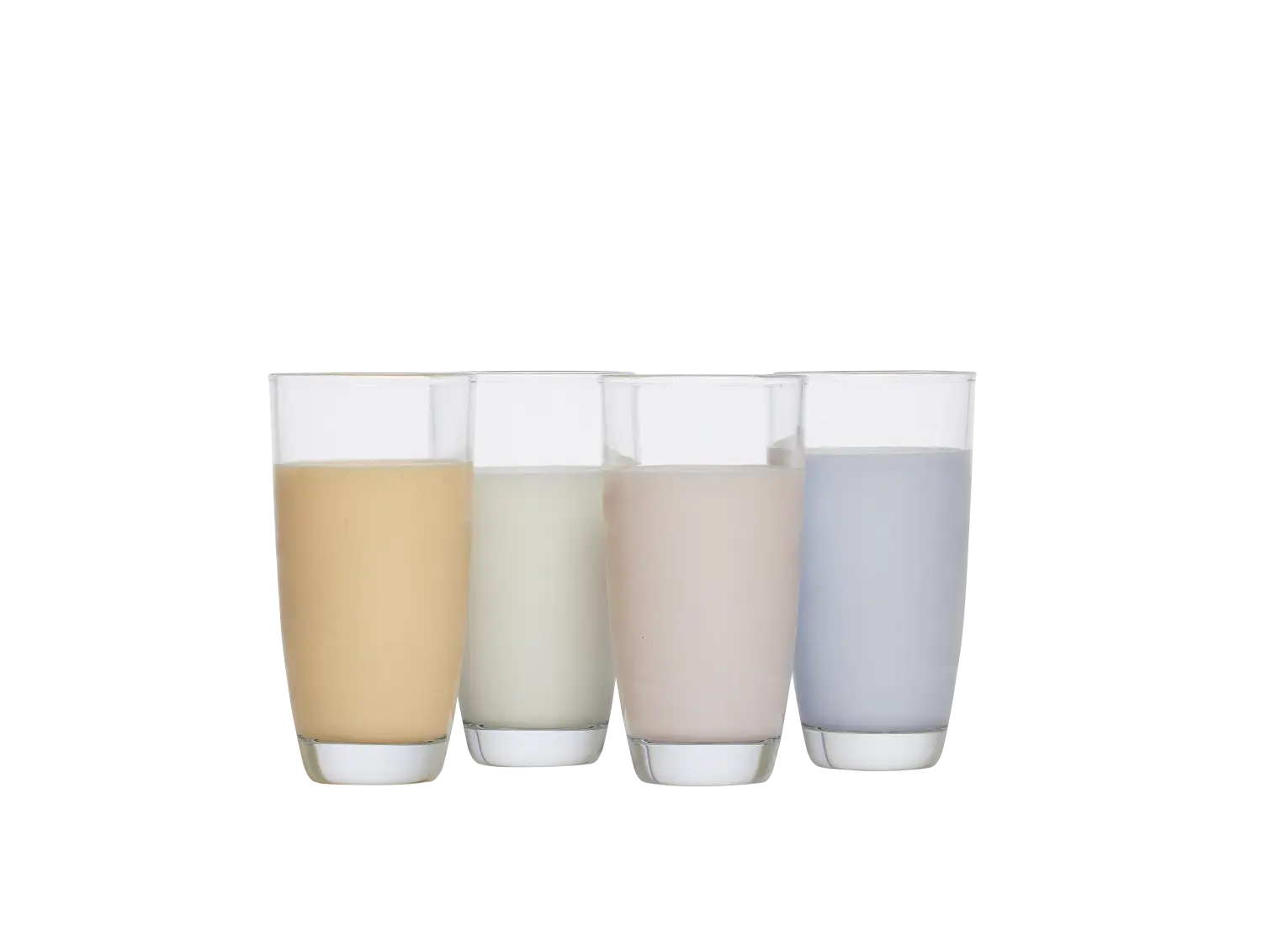What Dairy Products Contain Probiotics and How Do You Identify Them?
If you’re curious about food ingredients, here’s one you might be hearing more about lately: probiotics. It’s a term that often comes up concerning gut health and overall wellness. But what is it, exactly? And what’s it got to do with dairy food?
“Probiotics are living organisms, usually bacteria, that can offer a variety of health benefits such as helping improve digestive symptoms, but it can also extend outside of the gut. Probiotics could be helpful for digestive-related concerns such as helping lactose digestion, antibiotic-associated diarrhea, and irritable bowel syndrome,” says Amanda Sauceda, MS, RD.
Some yogurt and kefir products contain probiotic strains, including types of Lactobacillus and Bifidobacterium. And while gut health is one key area of health and wellness where dairy foods with probiotics can be of support, it’s not the only one.
There is research exploring the potential role of specific probiotic strains in supporting areas beyond digestive health, including vaginal microbiota balance, respiratory function, and skin health. However, these effects are strain-specific, and not all probiotics have demonstrated benefits in these areas.
The Difference Between Fermented Foods and Probiotic Foods
Not all fermented foods are probiotic. To be considered probiotic, a food must contain enough live organisms of well-defined strains that have been scientifically shown to provide health benefits.
Both fermented and probiotic foods are made with microorganisms, but only those with sufficient live organisms capable of delivering health benefits qualify as probiotic.
“There is a common misconception that all fermented foods are probiotic and that isn’t the case,” Sauceda says.
That’s because while fermentation can produce bacteria that may be beneficial, the specific types and quantities of live microbes in fermented foods are not always known or consistent.
Understanding Which Dairy Foods Offer Probiotic Benefits
Yogurt and kefir are two fermented dairy foods that can contain live and active cultures, and some varieties may also provide probiotic benefits—when they include specific strains in sufficient amounts supported by scientific evidence.
“One thing that makes fermented dairy products so special is that they often contain probiotics. Yogurt and kefir are two dairy fermented foods that can be a source of probiotics and are easily found in most grocery stores,” Sauceda says.
Probiotics in Cheese and More
In addition to yogurt and kefir, certain types of cheeses have probiotics, such as some varieties of Swiss, Gouda, cheddar, and cottage cheese. These cheese types are sometimes referred to as probiotic cheese because of their potential to support gut health. The amount and type of probiotics can vary depending on the cheese and how it is processed.
Beyond cheese, traditional fermented drinks such as lassi from India often contain probiotic strains like Lactobacillus and Bifidobacterium, which are known to support gut health.
A more niche, specific kind of fermented milk called acidophilus milk can also contain a probiotic. This milk is fermented by the bacteria Lactobacillus acidophilus and can be found in the health or natural food sections of many grocery stores.
List of Dairy Products with Probiotics for Each Life Stage
Childhood
- Yogurt is a great food for children. There are so many kid-friendly ways to eat yogurt such as frozen yogurt bark, parfaits or smoothies.
- Cheese can be good for kids because a sprinkle of shredded cheese on veggies is a great way to encourage them to try new foods.
Pregnancy
- Yogurt or kefir in a smoothie can be a nice option for when you need to eat but would prefer sipping on something. Fermented dairy foods can be a great option, but pregnant people must choose fermented foods that are pasteurized.
Young Adulthood
- Young adults can start fostering their kitchen skills and hit on trends with cottage cheese. Cottage cheese blends well in pasta sauces, smoothies or even frozen into ice cream.
Old Age
- Softer fermented foods like yogurt, and some cheeses, may be a better option for older adults with dental, chewing or swallowing concerns.
Can You Cook with Dairy Foods That Contain Probiotics?
Yes, you can cook with dairy foods that contain probiotics, but the heat will likely kill the live bacteria.
“Probiotics can change when you expose them to high temperatures. Since probiotics are living when you heat them, like you would with baking, the bacteria can become inactive,” Sauceda says.
Although the live cultures may not survive the cooking process, the food still offers nutritional benefits.
“Even though the probiotics may have been destroyed if you cook them, that doesn’t cancel out all the benefits you get from that fermented food,” Sauceda says. “For example, yogurt is a great baking ingredient, but you can still benefit from the protein content plus the reduced amounts of lactose, making it a low-lactose-friendly option.”
How to Identify Dairy Foods with Probiotics at the Grocery Store
Now that you’ve learned a bit more about the overlap and differences between fermented dairy foods and dairy foods with probiotics, how should that influence how you shop?
Easy: Start by reading the food labels.
“The best way to make sure your fermented food is a source of probiotics is to take a look at the food label and check to see if the bacteria strain is listed in the ingredients list,” Sauceda says. “If you don’t find the bacteria strain listed on the label, it doesn’t mean it’s not a source of good bacteria, it just doesn’t technically qualify as a probiotic food.”
In addition to the food label, many dairy foods with probiotics will have specific and distinct labeling on the package, such as the International Dairy Foods Association’s Live and Active Cultures seal.
“When foods have this seal, it means there’s a significant amount of live and active cultures,” Sauceda says. “You don’t have to only choose foods with this seal, it’s a voluntary program, but it’s a helpful tool for when you’re not sure.”


















